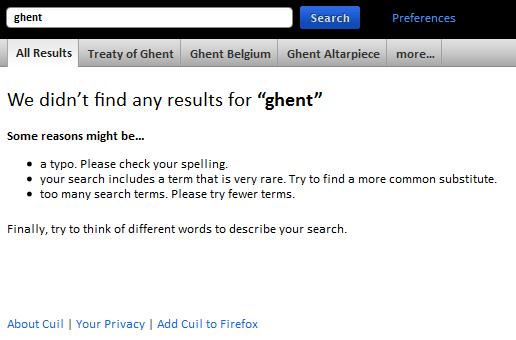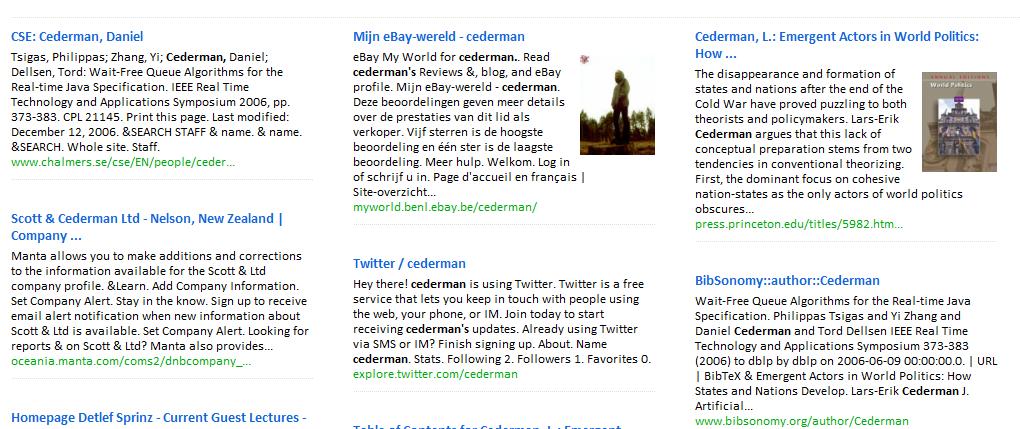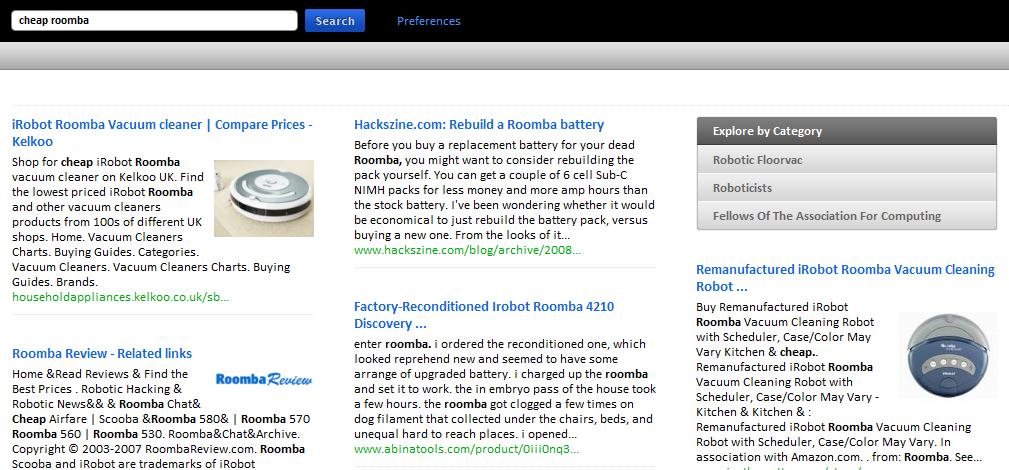From the way Mike Arrington carries on about it (oh and a bit more here too), you’d think so. My initial impressions are quite different (to be fair, he does state “…it doesn’t appear to have the depth of results that Google has, despite their claims. And the results are not nearly as relevant“).
I started with the old vanity surfing evaluation. I initially searched for plain old “cederman” (I’m number 2 on Google behind darn Lars-Erik at the moment!).
Very confusing list of results without any sort of rhyme or reason to them. None of the vaunted contextual search options delineating between the few Cedermans on the web (there are only three or four of us, with three of us being published authors). There are also some incredibly irrelevant results there, and why is an extremely old copy of my twitter page listed there, but not cederman.com?
“cederman-haysom”, “tim cederman” and “tim cederman-haysom” didn’t fare much better either. Ouch, it’s not hard when there are literally only three cederman-haysoms in the world!
Anyway, whatever. The true test of a search engine is looking for stuff that you actually want. While TechCrunch did several broad searches (such as for “dog”, “apple”, and “france”), these are fairly rare in real world searches. At the moment I’m planning a trip to Belgium, so I tried one of the cities I’m looking at accommodation for and trying to plan a tour of.

No results! Search for the alternative spelling “Gent” only showed pages in Dutch. The most curious aspect to this is that contextual search worked here. The options shown up the top are valid Ghent related things you’d search for, and it’s actually really nice having them identified and clickable in this manner. So why have “no results” for the main page? Doesn’t make any sense at all…
Finally, what’s with the ordering of results? At first I thought I had to read sideways, in rows essentially, but the results don’t line up. If I have to read by column, then I need to scroll to the bottom, and then all the way back to the top. Without a sense of relevance, it’s very disconcerting, particularly if you’re searching for something you don’t know much about. Sure it might help provide some users with a shotgun spray of results, but I think there’s a good reason why Google’s layout still works best.
As an example, imagine someone looking to buy a new Roomba:
While Arrington also states “I want to reemphasize that Cuil is only an hour old at this point, Google has had a decade to perfect their search engine.” This is disingenuous to say the least. Cuil is certainly not an hour old, and Google was VERY impressive when it first launched.
Still, I’ll have a close eye on what they do next.


